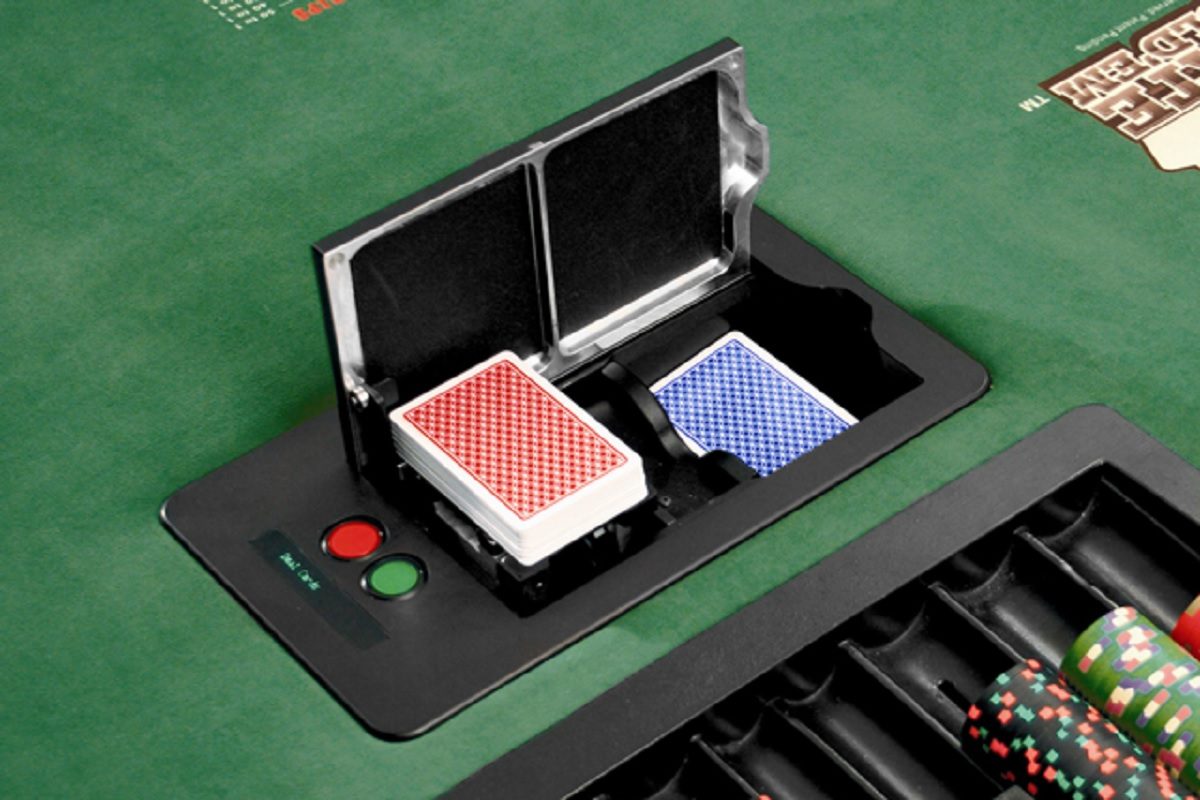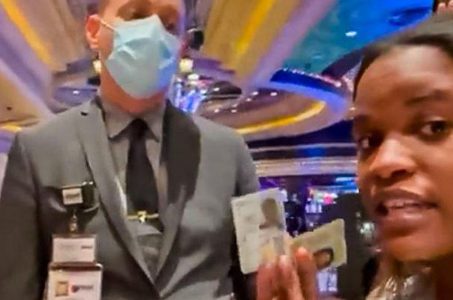Tribal Operator Sues Scientific Games Over Automatic Card Shuffler Monopoly
Posted on: September 16, 2020, 10:49h.
Last updated on: September 16, 2020, 01:02h.
Tribal casino operator the Tonkawa Indians of Oklahoma has launched a class-action antitrust lawsuit against Scientific Games Corp (SG). The suit claims the gaming giant is overcharging the tribe and other casino operators.

The suit alleges the group has monopolized the entirety of the US automatic card-shuffling machine market and just under 100 percent of the global market. It also names SG subsidiaries Bally Technologies and Bally Gaming.
Meanwhile, potential competitors have been strangled by a “lengthy pattern of predatory, vexatious patent litigation,” which has “effectively raised a substantial artificial barrier to entry for all potential competitors, as well as excluded competitors.”
“As a result, no potential competitor can enter the relevant market without a multi-million dollar war chest and a business plan that includes millions in upfront litigation costs as part of its anticipated start-up expense,” the suit asserts.
Sham Patents
SG inherited its card shuffler market dominance when it bought out Bally Technology in 2014 for $5.1 billion. A year earlier, Bally had acquired SHFL Entertainment, which invented the Shuffle Master machine in 1992, and has defended its patents aggressively.
“Too aggressively,” according to the lawsuit — and also to a federal judge in 2018, who accused the group of launching “frivolous lawsuits” to assert “sham patents” in a bid to monopolize the market.
In the earlier case, the court ordered SG to pay $315 million to a company, Shuffle Tech, it had previously forced out of the market with legal threats, despite knowing that its patents were invalid and unenforceable.
SG was found to have misled the patent office and to have engaged in “sham patent litigation against any competitor that dared to market competitive card shufflers.”
Market Power
The Tonkawa lawsuit lists several instances over the years when potential rivals were driven out of the market by such litigation. In some cases, SHFL Entertainment acquired their assets at a discount after they had been weakened by legal action.
The suit was filed on behalf of the Tonkawa and “similarly situated United States regulated casinos” that have been harmed by the monopoly, which is easily discoverable by checking SG’s customer base.
Defendants by their exclusionary conduct have obtained and maintained market power in the United States relevant market and as a consequence have harmed competition by charging above-competitive pricing, and denying competitive choice, to members of the proposed Class,” it states.
It seeks to recover damages “equal to the difference between the prices they directly paid to Defendants for card shufflers and the competitive prices that would have prevailed in a relevant market but for Defendants’ monopolization” – and it wants them trebled.
Related News Articles
Most Popular
FTC: Casino Resort Fees Must Be Included in Upfront Hotel Rates
Genovese Capo Sentenced for Illegal Gambling on Long Island
NBA Referees Expose Sports Betting Abuse Following Steve Kerr Meltdown
UPDATE: Former Resorts World & MGM Grand Prez Loses Gaming License
Most Commented
-
UPDATE: Whiskey Pete’s Casino Near Las Vegas Closes
— December 20, 2024 — 30 Comments -
Caesars Virginia in Danville Now Accepting Hotel Room Reservations
— November 27, 2024 — 9 Comments -
UPDATE: Former Resorts World & MGM Grand Prez Loses Gaming License
— December 19, 2024 — 8 Comments -
FTC: Casino Resort Fees Must Be Included in Upfront Hotel Rates
— December 17, 2024 — 7 Comments
















No comments yet